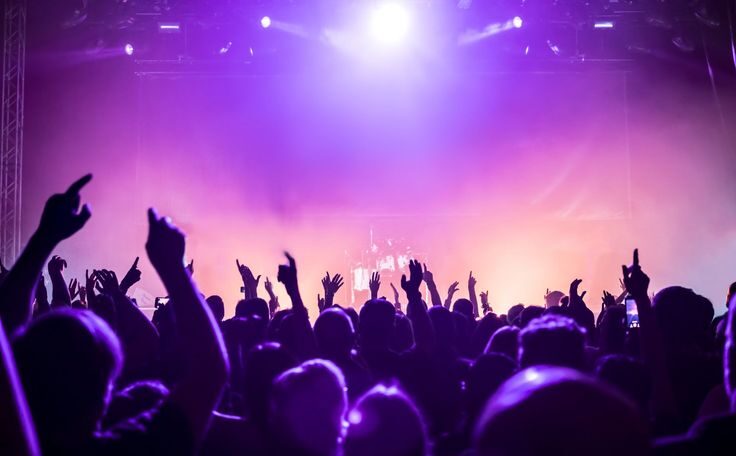
Introduction
Music festivals and concerts are more than just events; they are cultural phenomena that bring together music lovers, artists, and communities. These gatherings offer unique opportunities to experience live performances, discover new artists, and immerse oneself in the vibrant world of music. This article provides an in-depth look at major music festivals and concerts, highlighting their significance, the experiences they offer, and some of the most notable events in the music industry.
The Evolution of Music Festivals and Concerts
Music festivals and concerts have evolved significantly over the decades, reflecting changes in musical trends, technology, and audience expectations. Here’s a brief overview of their evolution:
- Early Beginnings
The concept of music festivals dates back to ancient times when gatherings were held to celebrate cultural and religious events. In the modern sense, music festivals began to take shape in the early 20th century, with events like the Newport Jazz Festival (1954) and the Montreux Jazz Festival (1967) setting the stage for contemporary music festivals. - The Rise of Major Festivals
The late 20th century saw the rise of iconic music festivals such as Woodstock (1969), which became a symbol of the counterculture movement. These large-scale events combined music with social and political messages, setting a precedent for future festivals. - The Digital Age
With the advent of digital technology and social media, music festivals and concerts have become more accessible and inclusive. Live streaming, social media coverage, and digital ticketing have transformed how audiences engage with these events, making them accessible to a global audience.
Notable Music Festivals & ConcertsAround the World
Music festivals offer diverse experiences, from intimate gatherings to massive celebrations of music and culture. Here are some of the most renowned music festivals globally:
- Coachella (USA)
Held annually in Indio, California, Coachella is one of the largest and most influential music festivals in the world. Known for its eclectic lineup, which spans genres from rock to hip-hop, Coachella attracts major artists and a diverse audience. The festival also features art installations, fashion, and a unique desert vibe. - Glastonbury (UK)
Glastonbury Festival, held in Somerset, England, is a legendary event known for its diverse music lineup and commitment to environmental and social causes. With multiple stages and genres, it offers an immersive experience, featuring performances from global stars as well as emerging artists. - Tomorrowland (Belgium)
Tomorrowland is a premier electronic dance music (EDM) festival held in Boom, Belgium. Renowned for its elaborate stage designs and high-energy performances, Tomorrowland draws fans from around the world who come to experience the latest in electronic music and spectacular visual effects. - Montreux Jazz Festival (Switzerland)
Established in 1967, the Montreux Jazz Festival is one of the longest-running jazz festivals in the world. Held on the shores of Lake Geneva, the festival features jazz, blues, and rock performances and has a rich history of showcasing legendary artists such as Prince, David Bowie, and Ella Fitzgerald. - Fuji Rock Festival (Japan)
Held at the Naeba Ski Resort in Niigata Prefecture, the Fuji Rock Festival is Japan’s largest music festival, offering a diverse lineup of international and local artists. Known for its picturesque setting and commitment to environmental sustainability, it attracts music lovers and nature enthusiasts alike.
Iconic Music Concerts: Moments of Musical History
Beyond festivals, individual concerts have shaped the music industry and left lasting impressions on audiences. Here are some iconic concerts that have become milestones in music history:
- The Beatles’ Rooftop Concert (1969)
The Beatles’ impromptu rooftop concert on January 30, 1969, marked the final public performance of the band. Held on the roof of Apple Records in London, this historic event was captured in the film “Let It Be” and remains a symbol of the band’s enduring legacy. - Live Aid (1985)
Organized by Bob Geldof and Midge Ure, Live Aid was a dual-venue benefit concert held simultaneously at Wembley Stadium in London and John F. Kennedy Stadium in Philadelphia. Featuring performances by Queen, David Bowie, U2, and others, it raised millions for famine relief in Ethiopia and is remembered for its impact and the iconic performance by Freddie Mercury. - Woodstock (1969)
The original Woodstock festival, held in Bethel, New York, became an emblem of the 1960s counterculture movement. With performances by Jimi Hendrix, Janis Joplin, and The Who, Woodstock is celebrated for its cultural significance and its role in shaping the music festival landscape. - Beyoncé’s Coachella Performance (2018)
Beyoncé’s headlining performance at Coachella 2018, often referred to as “Beychella,” was a groundbreaking moment in music history. Known for its elaborate production and powerful tribute to Black culture and history, the performance solidified Beyoncé’s status as a musical icon and set new standards for festival performances. - David Bowie’s “A Reality Tour” (2003-2004)
David Bowie’s “A Reality Tour” was his final concert tour before his death in 2016. Featuring a mix of his classic hits and new material, the tour was celebrated for its intimate performances and Bowie’s enduring charisma and creativity.
The Experience of Music Festivals and Concerts
Attending music festivals and concerts offers a unique set of experiences that go beyond just listening to music. Here’s what makes these events special:
- Live Music Experience
There’s an unparalleled thrill in experiencing live music. The energy of a live performance, the connection between the artist and the audience, and the collective experience of enjoying music with others create unforgettable memories. - Discovery of New Artists
Music festivals and concerts provide opportunities to discover new artists and genres. With diverse lineups and curated stages, attendees can explore emerging talents and broaden their musical horizons. - Community and Culture
Festivals and concerts foster a sense of community among attendees. The shared love for music, the social interactions, and the cultural activities create a vibrant and inclusive atmosphere. - Visual and Artistic Elements
Many festivals and concerts feature elaborate stage designs, visual effects, and art installations. These elements enhance the overall experience, adding a visual dimension to the music and creating an immersive environment. - Cultural and Social Impact
Music festivals and concerts often have cultural and social significance, reflecting and shaping trends, movements, and issues. They provide platforms for social commentary, activism, and cultural exchange.
Tips for Attending Music Festivals and Concerts
To make the most of your festival or concert experience, consider the following tips:
- Plan Ahead
Research the lineup, schedule, and venue details before attending. Plan your transportation, accommodation (if needed), and any necessary preparations, such as packing appropriate clothing and gear. - Stay Hydrated and Nourished
Festivals and concerts can be physically demanding, so stay hydrated and eat well. Many events offer food and drink options, but it’s also a good idea to bring your own water and snacks. - Protect Your Hearing
Prolonged exposure to loud music can damage your hearing. Consider bringing earplugs to protect your ears while still enjoying the music. - Respect the Venue and Others
Follow the event’s rules and respect the venue and fellow attendees. Dispose of trash properly, be considerate of others’ space, and adhere to any guidelines or regulations. - Capture the Moment
While enjoying the live experience, capture some memories with photos or videos. However, be mindful of others and avoid obstructing their view or disrupting the performance.
Conclusion
Music festivals and concerts are more than just entertainment; they are cultural celebrations that bring people together through the power of music. From iconic festivals like Coachella and Glastonbury to memorable concerts by legendary artists, these events offer unique experiences that resonate long after the final note fades.
By understanding the significance of these events, exploring notable festivals and concerts, and preparing for an immersive experience, you can fully appreciate the impact of live music on both a personal and cultural level. As music continues to evolve and innovate, festivals and concerts will remain central to the enjoyment and celebration of this universal art form.



